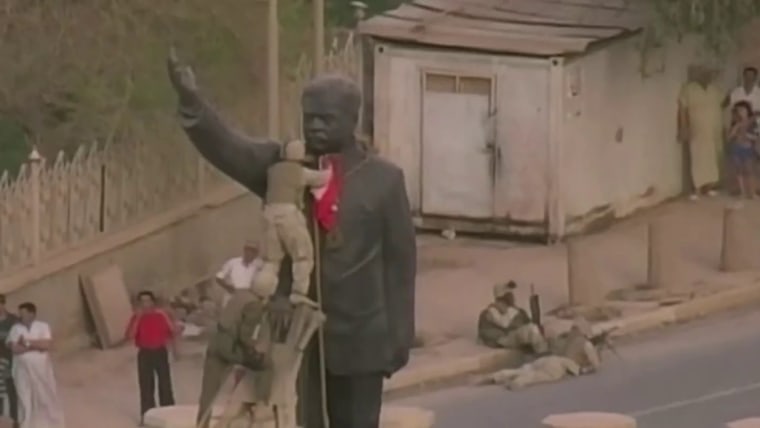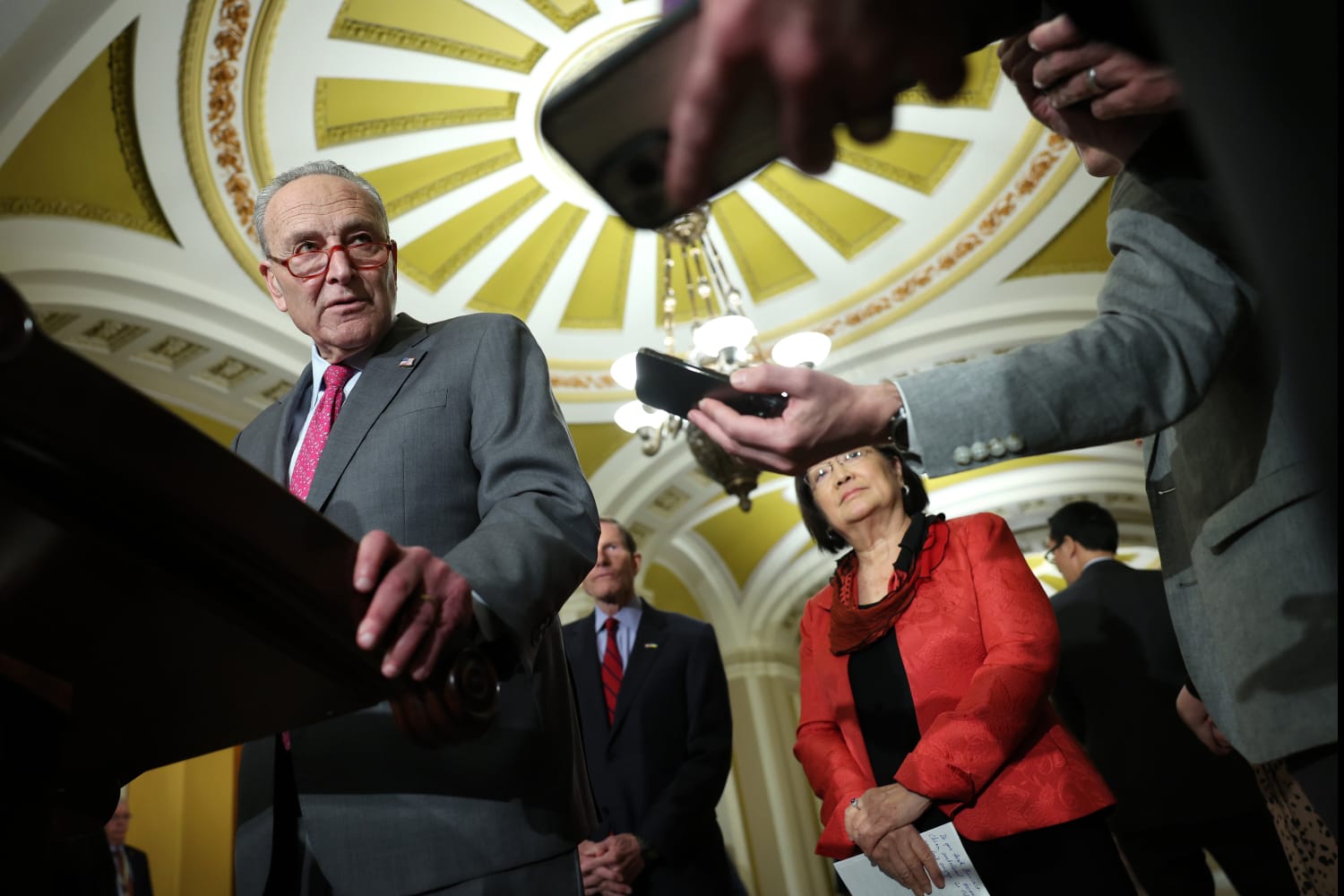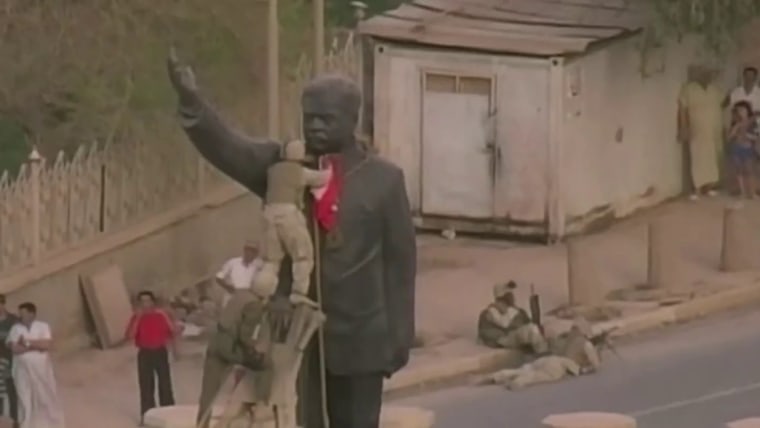WASHINGTON — The Senate is expected to pass bipartisan legislation on Wednesday that would repeal the authorizations Congress passed in 1991 and 2002 for the U.S. wars in Iraq.
The bill would repeal the authorization for the use of military force, or AUMF, for the Gulf War in 1991 under President George H.W. Bush and for the invasion of Iraq in 2003 under President George W. Bush.
Notably, the bill would not affect the AUMF that Congress passed in 2001 after the Sept. 11 attacks. Presidents have relied on the post-9/11 measure as part of the so-called war on terror to authorize military operations against terrorist organizations considered a threat to the U.S.
The White House recently said that President Joe Biden would sign the legislation if it comes to his desk.
While the measure is expected to pass the Democratic-led Senate, its fate in the GOP-led House is less clear.
House Speaker Kevin McCarthy, R-Calif., recently told NBC News, “I’d have to look at what their bill does first” when asked if he would bring it up for consideration.
Senate Minority Leader Mitch McConnell, R-Ky., announced on Tuesday that he did not support the AUMF repeals.
“I am opposed to Congress sunsetting any military force authorizations in the Middle East. Our terrorist enemies aren’t sunsetting their war against us,” he said in a statement, adding that “the 2002 AUMF bears directly on the threats we face today in Iraq and Syria from Iran-backed terrorists.”
In 2020, then-President Donald Trump invoked the 2002 AUMF in the U.S. killing of Iranian Gen. Qassem Soleimani, who was killed by a drone strike in Baghdad.
The U.S. withdrew its troops from Iraq in 2011, when Biden was vice president.
The Senate recently voted on several amendments to the war powers repeal bill, including one that would have repealed the post-9/11 war authorization. That measure failed in a 9-86 vote.
On Monday, the Senate advanced the AUMF bill in a 65-28 procedural vote that garnered support from 18 Republicans.
Congress has previously fallen short of passing repeals of the Gulf and Iraq war authorizations, largely because of intense division over the 2001 measure. Over the last decade, a number of lawmakers have called for its reversal, arguing the authorizing language was overly broad and has been misused. But the debate over the measure has often hit an impasse, with some members of Congress wanting to modify the language and others wanting to keep it intact.
In 2021, when Democrats controlled the House, a bill to repeal the 2002 AUMF passed with support from 49 Republicans. The Senate, however, never took up the bill.
Source: | This article originally belongs to Nbcnews.com











